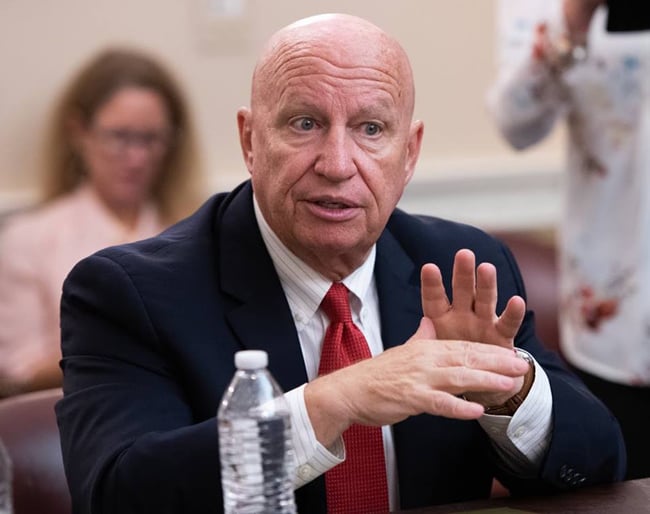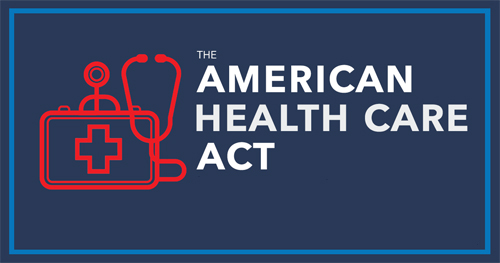
Health Care and Taxes

A compelling new examination over multiple years and multiple states found that infants are more likely to survive to age one in states that raise more revenue and raise it from those most able to pay. Generating taxes from rich people and corporations can help babies make it to their first birthday.
Key Reform in Build Back Better Act Would Close Loophole Used by the Rich To Avoid Funding Healthcare
November 18, 2021 • By Joe Hughes

The proposal in the Democrats’ Build Back Better proposal applies the 3.8 percent Net Investment Income Tax to all profit distributions from partnerships and S-corporations so that this income of wealthy pass-through business owners no longer escapes.
Sen. Warren Proposes Sweeping Tax Changes to Finance Medicare for All
November 1, 2019 • By Steve Wamhoff

Senator and presidential candidate Elizabeth Warren released a plan today to offset the costs of Medicare for All, a publicly funded single-payer health care program. While ITEP has not crunched the numbers, it seems likely overall that her proposals would raise trillions of dollars and leave costs and taxes either unchanged or lower for most low- and middle-income people.
End-of-Year Tax Measure Would Give Deficit-Financed Tax Cuts to Wealthy Families and Corporations
December 12, 2018 • By ITEP Staff

Outgoing Ways and Means Chairman Rep. Kevin Brady (R-TX) today introduced legislation that includes $80 billion in tax cuts that are unpaid for and largely benefit the wealthy. The bill would, among its numerous provisions, expand retirement and education savings programs that offer very little value to low-income families, delay the Health Insurance Tax for an additional two years, and delay the Medical Device Tax for an additional five years.
Senate Health Care Reform Bill Just as “Mean” as the House Version
June 26, 2017 • By Alan Essig
The Congressional Budget Office today released its score of the Senate Health Care proposal and the news is not good. It’s no wonder a narrow group of 13 lawmakers cobbled together the bill behind closed doors. Now that the measure has seen the light of day, we know that it epitomizes Robin Hood in reverse policies by snatching health coverage from 22 million people by 2026 (15 million in 2018) while showering tax cuts on the already wealthy.
The GOP Health Plan Cuts Medicaid to Lower Taxes for the Richest 3 Percent
June 16, 2017 • By Alan Essig

The bill passed by the House of Representatives last month to repeal the Affordable Care Act (ACA) is the most unpopular legislation in decades. Lawmakers should reverse course and take the necessary time to put together legislation that would preserve or, better yet, improve access to health care. But this isn’t likely to happen because at its core, the American Health Care Act isn’t truly health care reform. It is tax cuts that disproportionately benefit the rich shrouded in legislative provisions that would weaken the existing health care law.
Which States Benefit from the Tax Cuts in the GOP Health Plan?
June 15, 2017 • By Steve Wamhoff
Congressional Republicans’ plans to repeal the two largest tax increases on individuals that were enacted as part of the Affordable Care Act (ACA) would disproportionately benefit residents of Connecticut, New York, the District of Columbia and 10 other states. The remaining states would receive a share of the tax cuts that is less than their share of the total U.S. population.
Avocado Toast, iPhones, Billionairesplaining and the Trump Budget
May 30, 2017 • By Jenice Robinson

A couple weeks ago, a billionaire set the Internet ablaze when on 60 Minutes Australia he chided millennials to stop buying avocado toast and fancy coffee if they wanted to buy a home. The backlash was swift and deserved. Twenty- and early thirty-something people rightly took offense to the suggestion that they haven’t purchased homes […]
23 Million Uninsured Americans Is Too Great a Cost to Finance Tax Cuts for the Rich
May 24, 2017 • By Richard Phillips

The cost to give $1 trillion in tax cuts to the wealthy and corporations is 23 million uninsured Americans by 2026. This is the bottom-line take away from the much-awaited Congressional Budget Office (CBO) score of the American Health Care Act, which House Republicans rushed through the chamber and narrowly passed (217-213) in early May.
Evidence Counts: Wealthiest 1% of West Virginians Gain from Tax Cuts in Health Care Repeal
March 20, 2017
The House proposal to repeal the federal Affordable Care Act (ACA) and replace it with the American Health Care Act (AHCA), provides only a tiny fraction of very wealthy West Virginians tax cuts while reducing the number of Americans with health coverage by an estimated 24 million. The two big tax cuts included in the […]
Affordable Care Act Repeal Includes a $31 Billion Tax Cut for a Handful of the Wealthiest Taxpayers: 50-State Breakdown
March 17, 2017 • By Matthew Gardner
Congressional Republicans have proposed legislation that would repeal the Affordable Care Act (ACA), including rolling back a number of tax changes that were enacted to pay for the ACA's health care expansions. Among these tax changes are two targeted income tax increases that took effect in 2013, each of which apply only to a small number of the wealthiest Americans: the net investment tax and additional Medicare tax. Repealing these two taxes would cost over $31 billion a year if implemented in tax year 2016, and 85 percent of the benefit from repealing these taxes would go to the best…
Evidence Counts: A Marriage Not Made in Heaven: A State EITC Without an Income Tax
February 28, 2017
Last Friday, the Senate Select Committee on Tax Reform explored the idea of amending SB 335 to include a version of a refundable state Earned Income Tax Credit. As noted previously, SB 335 would replace the personal and corporate income tax, along with the sales and use tax, with a general consumption tax of 8 […]
